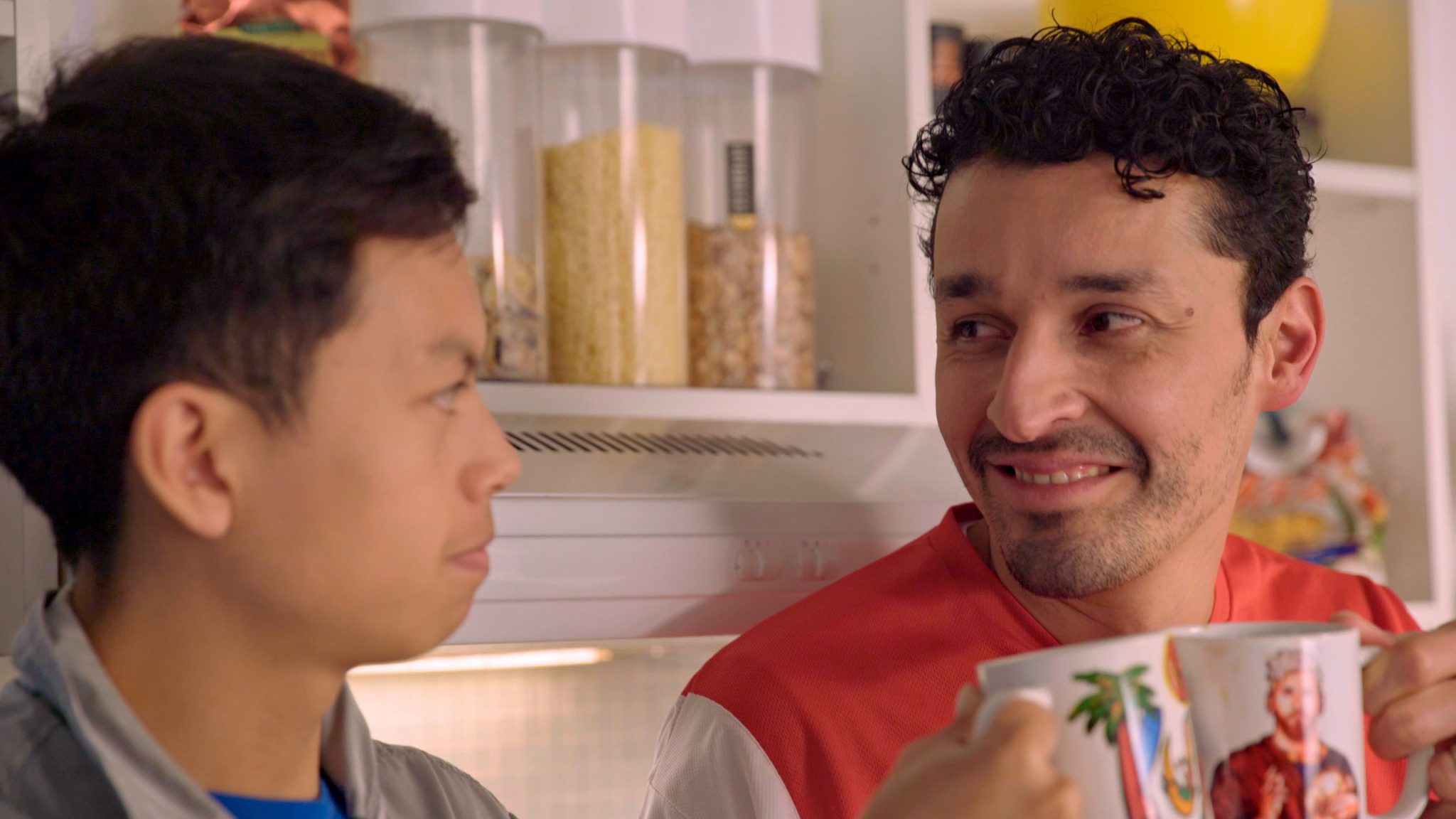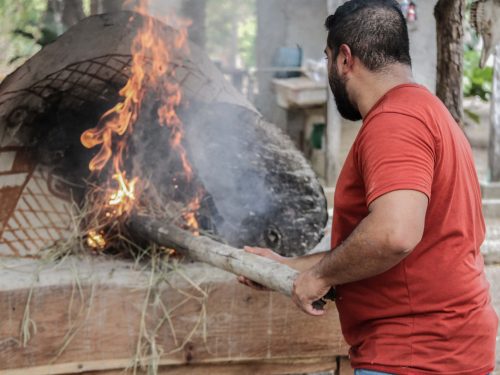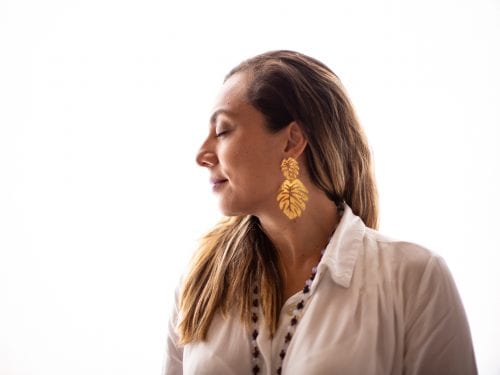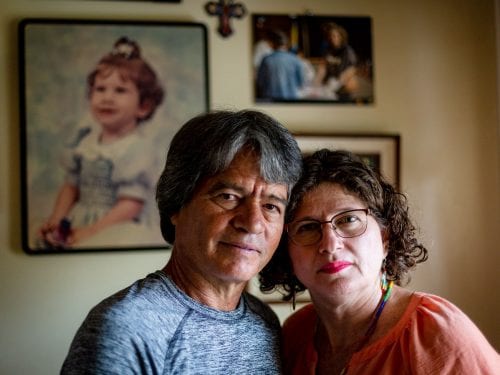
“Rafa, man, please, with that juggling thing for sure he can get the job done blocking. See the thing. They ask for 10. I already have the starter. I just need the goalkeeper.”
The above dialogue takes place right at the beginning of the series. Choriza is pleading with his friends. He is the coach of an incomplete team that wants to win an amateur soccer cup.
It’s easy to imagine this conversation taking place in a soda (small restaurant), in a cantina or on the bench at any soccer field in Costa Rica, but it takes place almost 5,800 kilometers (3600 miles) away, in Argentina.
Choriza is one of the main characters in La Titular, an eight-part Argentine-Costa Rican web series about soccer, foreigners and cannabis. The series is put on by Audiovisual Arts students and graduates from the National University of La Plata, Argentina.
One of those students is Enio Arroyo, who plays Choriza and was also in charge of the art direction for the series. Enio is an actor, plastic artist and educator from Nicoya who has been working in this South American country for the last 10 years.
La Titular is one of his most recent projects. It premiered last July and all the episodes are available on YouTube.
In the series, Enio’s character tries to get a group of foreigners to become the champions of an amateur soccer cup, but his starting team is incomplete for different reasons. Choriza does the impossible to complete the team and win the cup. At the same time, some of his players are torn between pursuing their pleasures, such as participating in a Cannabis Cup, or helping their friend fulfill his dream as a coach.
In addition to Costa Ricans, the series has actors and actresses from different nationalities such as Argentina, Brazil, Chile, Colombia and Ecuador. They lay on the table the experiences and problems that they face in the City of La Plata.
More than 250 people got the project on its way through a crowdfunding campaign, and each stage of production was made possible with the support of institutions, organizations, enterprises and producer friends.
The series’ theme song is Muros (Walls) by the Costa Rican band Infibeat.
The Voice of Guanacaste spoke with Enio via Zoom about the web series, what it means to be an immigrant from Guanacaste and what he has learned during this pandemic. Here is an excerpt from the interview:
Who are you, Enio?
I consider myself a very curious person. I am passionate about secrets and the coexistence of people. It’s not the curiosity of a brilliant mind. I’m very interested in knowing about everyday things.
And where has that curiosity taken you? What have you learned lately?
I think what I’m learning at the moment is rather strong, to be able to build, not from what I think, but from what the other [person] is trying to share with me. Costa Ricans have curious minds, but we also sometimes want to say things and not listen to each other so much. It seems to me that it would be important that as a society, we listen to each other, but that we seriously listen to each other, not waiting for what to say in response to the other. Really listen.
What has been the most difficult thing for you as an immigrant during the pandemic?
When you are an immigrant, you always want to help others. We always ask ourselves the question of why he came or what he needs. So, there is always that question of wanting to remember where you come from and what things you can share with others. I feel isolated because I can’t see the people from Costa Rica. I think that has been the most difficult, being away from the people who made you be able to, let’s say, to be close to the things that you don’t have near.
Last year, Zuñiga held his first individual exhibition, called Mestizo, featuring works made with non-traditional materials
In the TEDx talk that you did, you talked a lot about the importance of playing. How have you solved that creative aspect in Argentina, which has had one of the longest quarantines in the world?
It has been quite complicated for me because I had been working hard on the possibility of being able to use the city as a play place. We had a project called Corredor de las Infancias (Childhood Corridor). What we did was close off ten blocks in the city so that the kids would go back to playing in the street. But now I’m trying to think about how to create outdoor spaces, outside, in the parks. I can’t stop doing it because it’s a form of vitality. It’s a way of being able to continue participating in building both society and culture.
What has the pandemic made you reflect on?
I question the theme of success a lot. Who is successful? The one who has 20 titles or the one who is calm and can breathe at least a little bit? That is a very personal series of questions, of course. In that, I am very Guanacastecan. I don’t know if it will be very exclusive, but in general the Guanacastecan is very hardworking. And I’m really looking around with whatever. I started to make tortillas so I could eat. Literally, I started selling tortillas. It seems like a joke but that’s what I’m doing now. It reminds me of my grandmother. I get up to grind at seven in the morning and I go out to deliver them. Fortunately, I had an achievement last year, which was being able to be accepted by a well-known gallery in Buenos Aires. I’m working a lot, totally dedicated to artistic production.

Enio is a teacher, plastic artist, sculptor, set designer, actor and researcher on recreation and gaming culture.Photo: Enio Arroyo
Where did the idea for La Titular come from?
The director, Juan Luis Araya, a Costa Rican from Alajuela, started with a little pilot [episode]. Juan is very interested in raising awareness about the reality of foreigners here in the region. We all got together and each one worked from his own area of expertise, for example, I get to play a character, but I am the art director.
Weren’t you guys afraid to put in so much Costa Rican slang?
To say “picadito”, as they say here to “la mejenga” (football match), to make a script as a Costa Rican and changing everything that we are would be a bit, let’s say, contradictory. And what the director wanted was for us to depict ourselves. In the series, there are Ecuadorians, Chileans, Colombians, and they also depict what they are.
What characteristics or characters do you think the audience here can connect with when they watch the series?
I think Susana, for example, the woman that helps Juanito. That is very much the character of the woman in the neighborhood who gives you a hand and helps you. I remember a lot about my neighbors in Guanacaste. Whenever they made something to eat, they would bring me some. The character Choriza is the legitimate Costa Rican exaggerator. Or a know-it-all. He has many Tico traits, that passion, but not the passion that goes so far that you lose your mind, but the dreamer. The Tico who wants to be world champion, the one who almost reached the semifinals of the World Cup and even though we didn’t have shit for history in soccer, we believed we could. I mean, I think that’s the type of guy who won’t let me give up here.







Comments